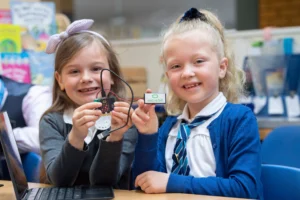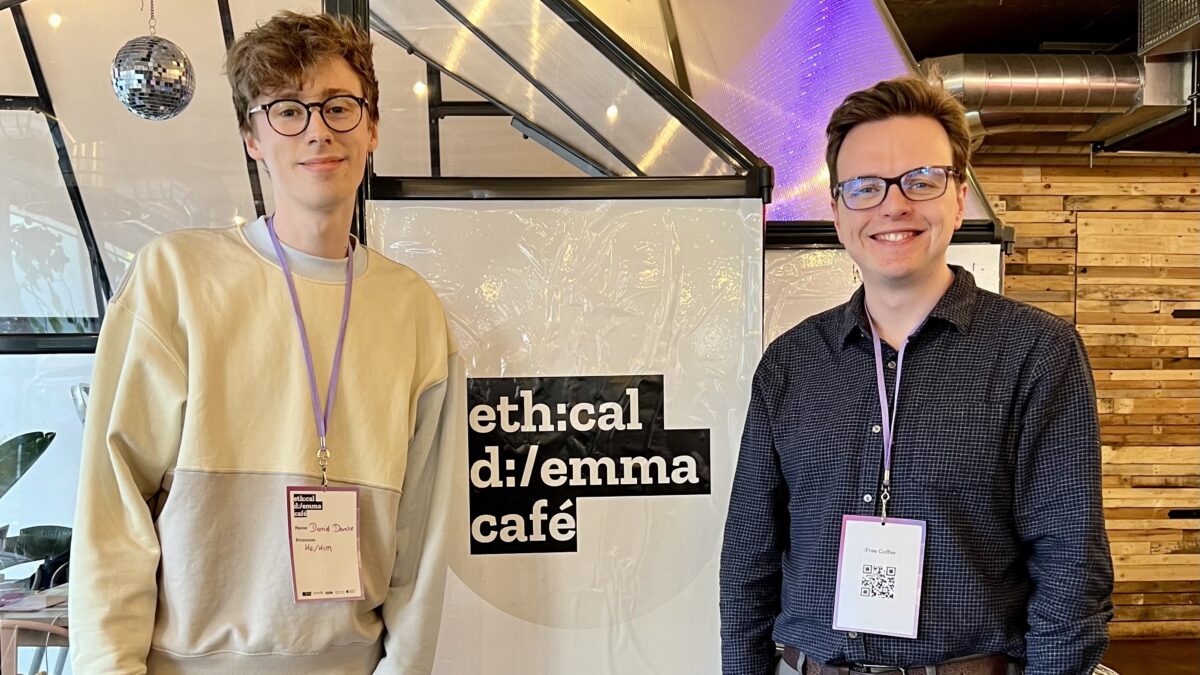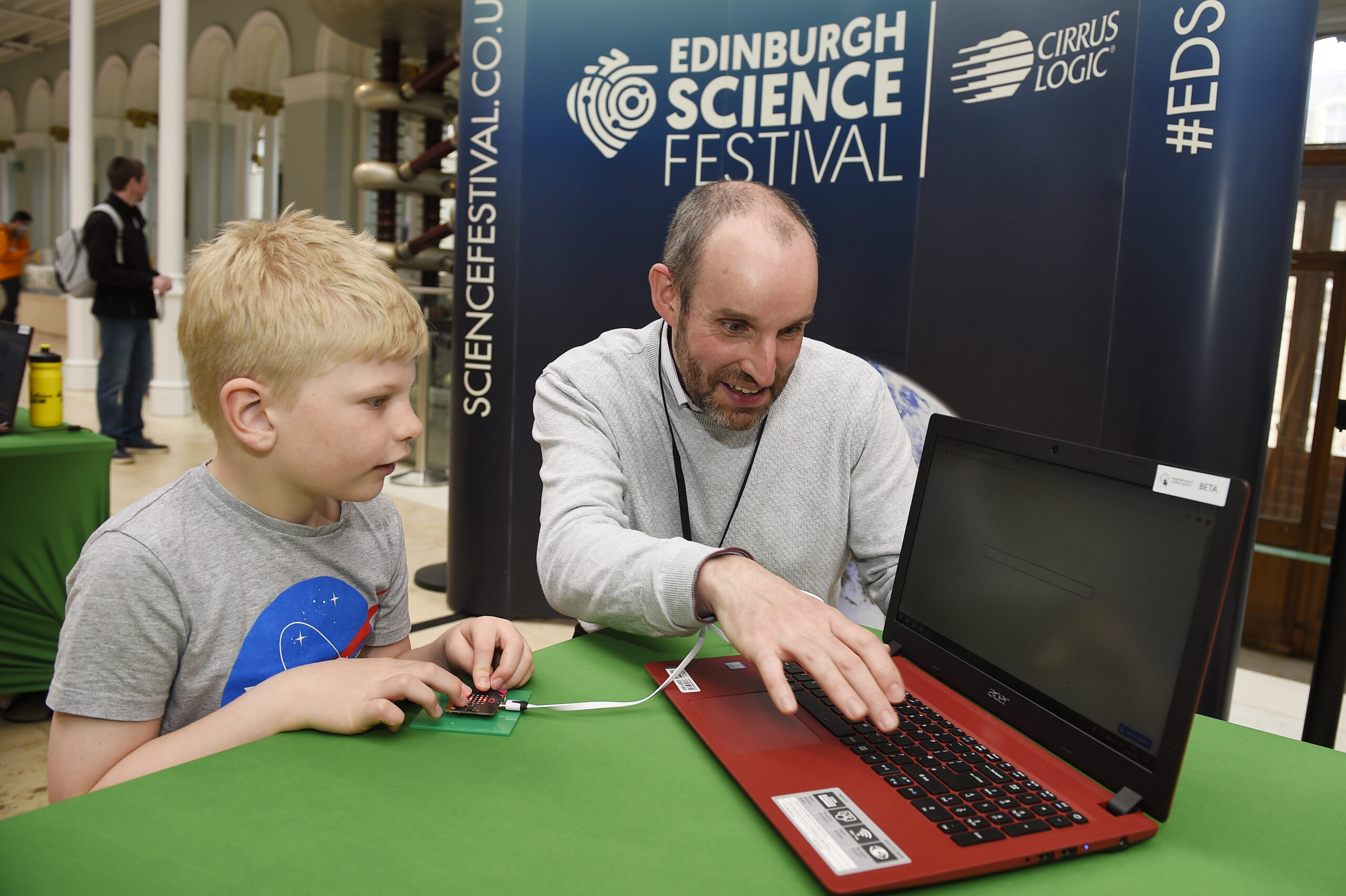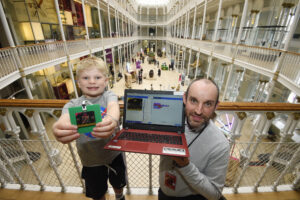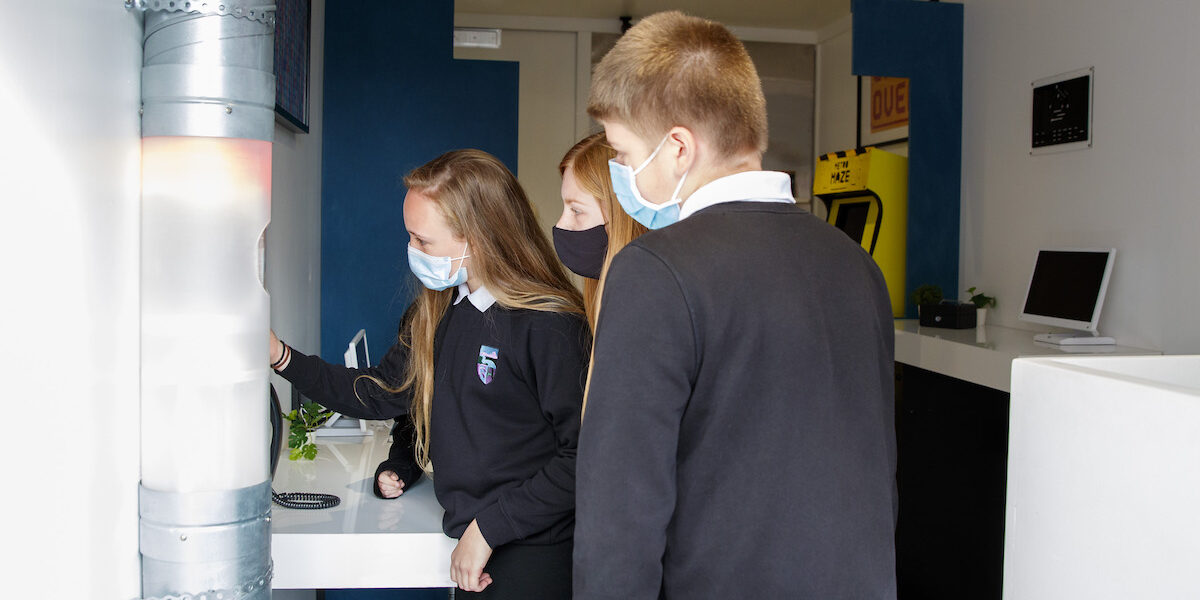The following was written by CGI, and originally posted in Business Scotland.
The technology sector is flourishing. Opportunities that come with skilled jobs are continuing to grow apace. But for some, that world of opportunity can still feel light years away.
That is why companies like CGI have committed themselves to not only invest in a skilled workforce, but also make sure that workforce is diverse, with opportunities to show their talent in an equal and inclusive workplace.
In Scotland today, the hunt is on to find the next generation of coders, cyber security experts and systems engineers. Since CGI established its presence north of the border, it has built up its own diverse workforce thanks to its commitment to investing in a skilled workforce.
It does so through its recruitment of apprentices. In 2012, the global IT business consulting services company introduced its Graduate Apprenticeships Programme to Scotland. The programme sees CGI work in partnership with Glasgow Caledonian University and Edinburgh Napier University to attract young people with a passion for technology.
Students study towards a four-year BSc Honours degree – in Software Development at Glasgow Caledonian or IT Management for Business at Napier – while also spending time to develop their career on real-life projects at the company, which has offices in both Edinburgh and Glasgow.
Those chosen are given a permanent contract from Day One, with a paid starting salary of £19,000. Maria Whittingham, Early Careers Recruitment Specialist at CGI, says such a starting salary provides a huge opportunity for people who might otherwise not consider a career in STEM due to the cost of a more traditional university education.
She said: “CGI is all about providing opportunities for students from every type of background, and this is a brilliant opportunity for people to progress their careers as well as their education.
“The way these opportunities are structured is meant to be totally inclusive: it takes into account those who may have different learning styles, and who in fact benefit far more from complementing their learning with real-life experience in a work setting.
“So at CGI, we are both growing our own talent and widening our outlook, perspectives and viewpoints because our workforce has become much more diverse.”
CGI currently has eight graduate apprentices in Scotland. Glasgow Caledonian’s Software Development for Business course is more technology based while Napier’s is an IT Management for Business degree.
Maria continued: “There are also technical graduate opportunities for people with an interest in IT, software development and software testing. For these roles we accept graduates from all degree disciplines but they do need to show some evidence of skills like programming.
“People with STEM degrees tend to go for technology posts, but we have also had people from other degree backgrounds who have an interest in programming. For them, we provide all the training they need when they join the company.”
Within CGI, the company is determined to break the gender bias in technology. Nearly 4 in 10 members of its senior leadership team in the UK are women, while more than 90% of female staff –– known as members – put forward for promotion were successful this year.
CGI recently joined the Valuable 500 – a global movement putting disability on the business leadership agenda. Its own peer-to-peer network enables members with different disabilities or areas of interest to share ideas and provide mutual support.
CGI’s peer-to-peer network for Black, Asian and Minority Ethnic (BAME) members emphasises the importance of celebrating various cultures within CGI, while its LGBT+ network supports and represents UK members from all minority sexual orientations and gender identities.
The organisation has been shortlisted for Targetjobs National Graduate Recruitment Awards 2022 for best diversity and inclusion strategy, best school leaver programme, best on-boarding experience and best virtual recruitment experience. Each award is voted on and determined exclusively by students, undergraduates and school leavers.
Additionally, CGI backs charities such as Digital Xtra Fund, who enable extracurricular tech activities for young people across Scotland and encourages young girls from all backgrounds to join coding clubs which inspire them to consider careers in digital tech.
One example is Southmuir Primary School, in Kirriemuir, Angus, which used a £5,000 grant provided by the Fund to set up a club exclusively for 32 girls from P4 to P7 – who otherwise might never have encountered such an opportunity – to enjoy engaging ways to learn to code. It was so popular that the school also set up an equivalent club for boys.
Karen-Ruth Phillips, PT Raising Attainment at Southmuir Primary, said: “The club has fostered a really fun way of learning coding and STEM, through receiving digital badges and certificates which they earn for completing different levels of their Code.org course.
“Engagement levels have been really high and the girls especially have not only enjoyed it themselves, they have even got their parents looking into additional coding and STEM activities.”
Kraig Brown, Digital Xtra Fund’s Partnerships and Development Manager, said: “Our goal is for every young person in Scotland to have access to innovative and meaningful activities, regardless of their gender, background, or where they live. This goal has been encapsulated perfectly by the excellent STEM club at Southmuir.”
Lyndsey Teaz, Vice President and Scotland Business Unit Leader (Interim), said: “CGI believes passionately in supporting the communities in which we live and work and it has never been more important to encourage talent and innovation in our sector.
“It is tremendous to see so many young people from all over the country, from different backgrounds. I personally, being a woman in tech, am delighted to see more young girls developing a huge enthusiasm for STEM education.
“We are committed to helping more and more people on their journey and we look forward to seeing the results over the coming months and years.”

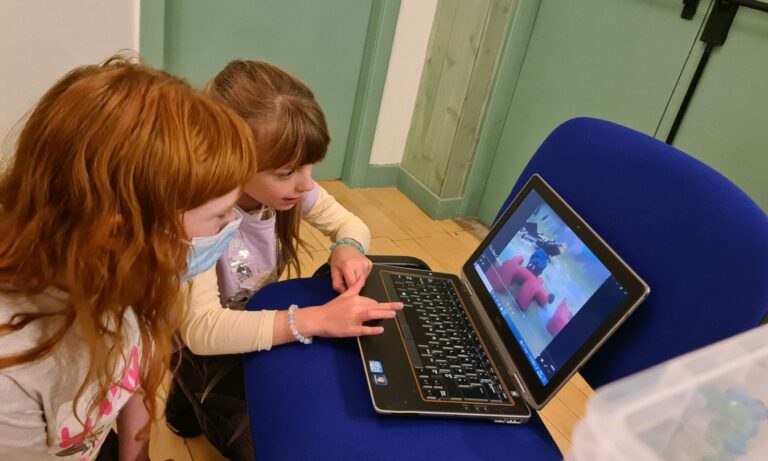
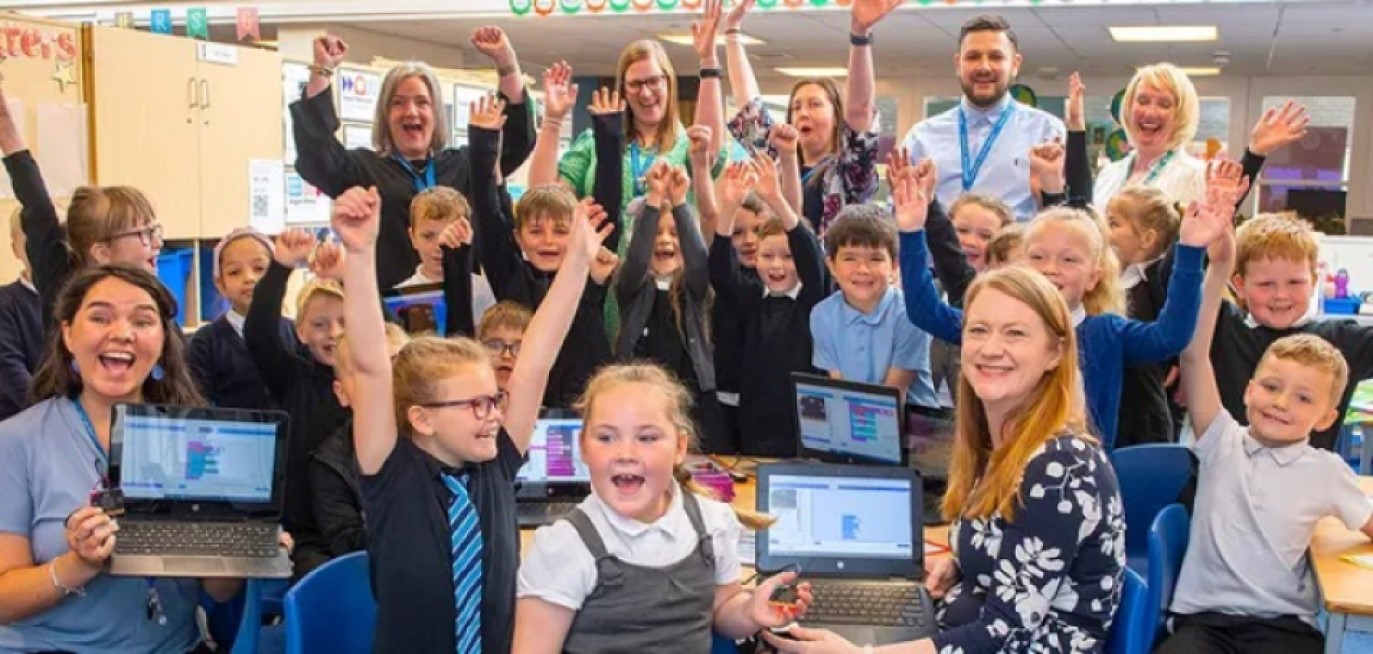
 Delivered by education non-profit, The Micro:bit Educational Foundation, the micro:bits are pocket-size entry-level coding devices that offer children an enjoyable entry into coding and computing science. There are over six million devices already in use across the globe, including most UK secondary schools. In the coming weeks, all primary schools across Scotland will receive twenty devices alongside a host of new teaching resources tailored for primary school level in a world-leading investment from the Scottish Government to develop digital skills in even younger children.
Delivered by education non-profit, The Micro:bit Educational Foundation, the micro:bits are pocket-size entry-level coding devices that offer children an enjoyable entry into coding and computing science. There are over six million devices already in use across the globe, including most UK secondary schools. In the coming weeks, all primary schools across Scotland will receive twenty devices alongside a host of new teaching resources tailored for primary school level in a world-leading investment from the Scottish Government to develop digital skills in even younger children.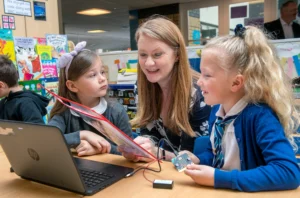 During her visit, Somerville saw the devices come to life in the hands of children aged between 6-8 in an exciting, interactive lesson around health and wellbeing. micro:bit ambassadors shared an insight into the wide range of capabilities the nifty devices offer, while teachers at the school explained first-hand how the new investment is helping integrate digital skills and computational thinking into lessons across the entire curriculum as part of the Scottish Government’s Scottish Technology Ecosystem Review programme.
During her visit, Somerville saw the devices come to life in the hands of children aged between 6-8 in an exciting, interactive lesson around health and wellbeing. micro:bit ambassadors shared an insight into the wide range of capabilities the nifty devices offer, while teachers at the school explained first-hand how the new investment is helping integrate digital skills and computational thinking into lessons across the entire curriculum as part of the Scottish Government’s Scottish Technology Ecosystem Review programme. Shirley-Anne Somerville, Cabinet Secretary for Education and Skills, Scottish Government: “It has been inspiring to see first-hand how these devices can help to get children thinking creatively and to be enthused about technology. It’s an exciting prospect to imagine these scenes being replicated in schools all over Scotland in the coming weeks and months, and we’re proud to be leading the world in creating quality engagement in computing sciences among our young learners.”
Shirley-Anne Somerville, Cabinet Secretary for Education and Skills, Scottish Government: “It has been inspiring to see first-hand how these devices can help to get children thinking creatively and to be enthused about technology. It’s an exciting prospect to imagine these scenes being replicated in schools all over Scotland in the coming weeks and months, and we’re proud to be leading the world in creating quality engagement in computing sciences among our young learners.”